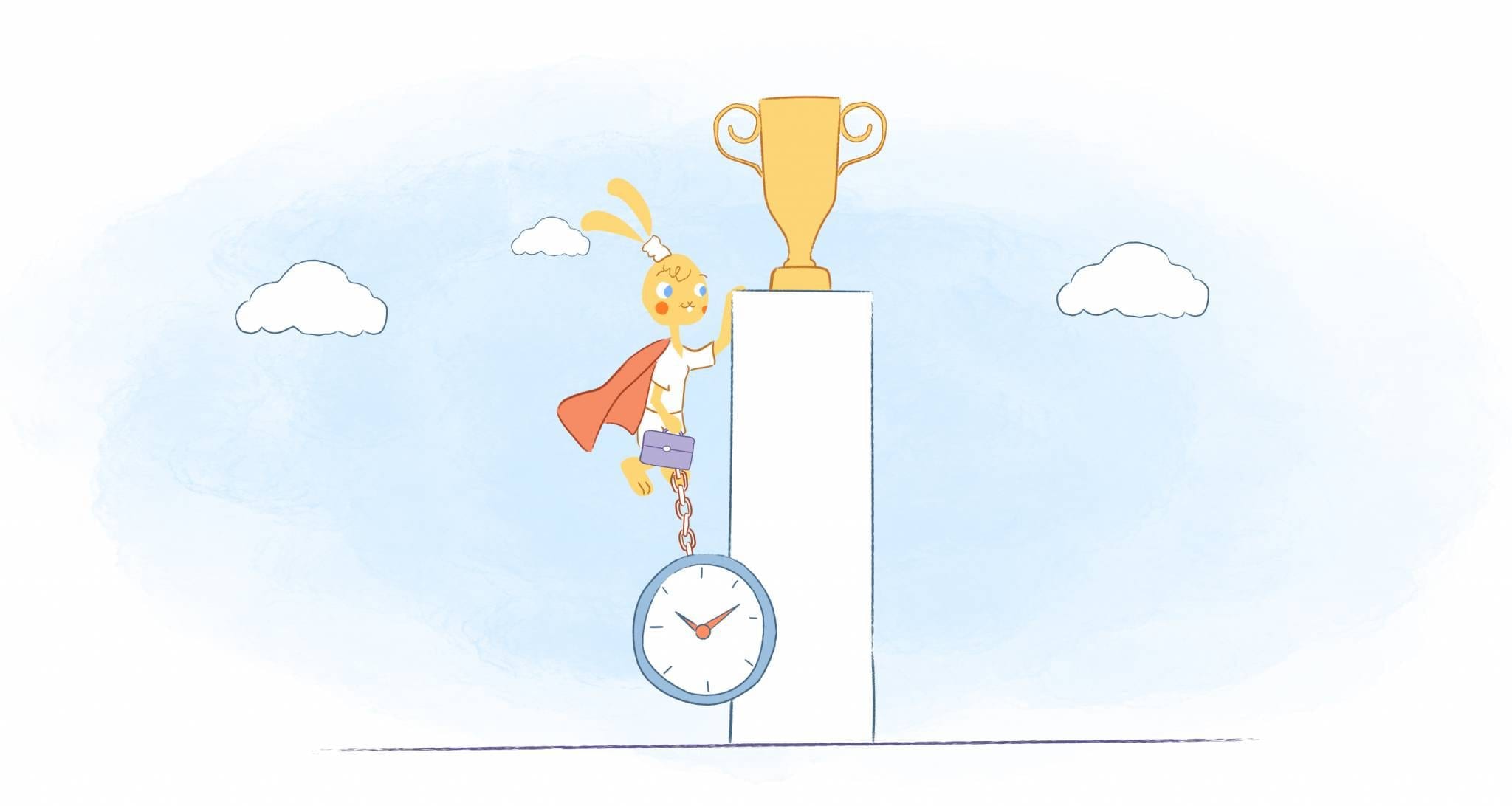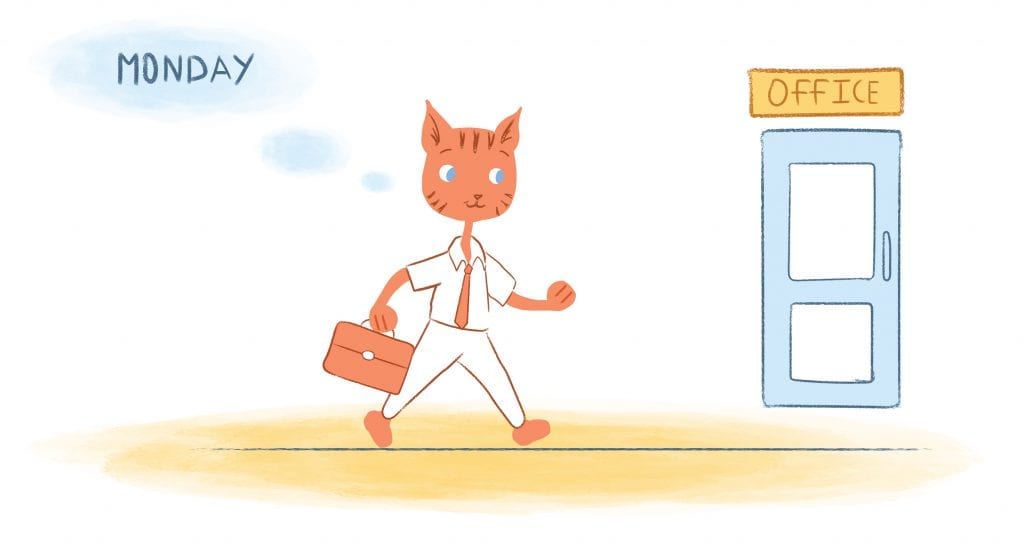

I recently grabbed lunch with a long-time friend. We haven’t been able to catch-up lately because we’ve both been swamped. However, while I’ve been working non-stop on growing my business, he’s been filling his schedule with other people’s priorities.
For example, his boss has asked him to work a ton of overtime as of late, which he always accepts. He also told me that he’s had to help a friend move recently as well. There were some other minor examples, but I think you get the point. Whenever someone asks for his time, he doesn’t say “no.”
I don’t think anyone enjoys saying “no” to others. I know that I was guilty of this for years. In facgt, I would delay my own work or interests if someone asked me to help them out on a project or join them for a meal. Eventually, I felt that some people were taking advantage of this. And, more importantly, I was addressing my needs, like staying on top of work or pursuing hobbies.
What changed was coming across this quote from Derek Sivers, “If you’re not saying “HELL YEAH!” about something, say ‘no.’” Sivers goes on to say, “When deciding whether to do something if you feel anything less than ‘Wow! That would be amazing! Absolutely! Hell yeah!’ — then say ‘no.’”
Since then, I’ve been more selective on saying “yes.” It’s taken some time. But, I now feel confident enough to turn down requests for my time if it’s something that isn’t interesting, helping me grow, or that I have the time for.
If this is an area that you need to improve upon, then let’s explain why you should say “no” more often. And, more importantly, how you can do so without ticking anyone off.
Why You Need to Say “No” More Often
The method of saying no can vary from person to person. But, saying “no” will actually make you more successful and productive. Warren Buffett has famously said, “The difference between successful people and successful people, is that successful people say “no” to almost everything.” And it’s easy to see why.
When you accept time requests, you’re getting taken away from more important things. For example, you would love to help a friend launch their new business or attend their party on Friday night. But, if you haven’t tackled all of your priorities, then we’re putting them ahead of yourself.
I know that sounds selfish. But it’s not. If you’re now filling-up your calendar with other people’s priorities, then you’re aren’t able to say “yes” to the essential things, such as spending time with your family, learning a new skill, or improving a business idea. What’s more, this adds more stress to your life. And, it prevents you from getting the proper amount of rest and recovery you need.
Still not convinced? Here’s another reason, saying “yes” to everything can make you unreliable. You may begin to disappoint others. The reason is pretty apparent. When you stretch yourself too thin, you’ll end-up missing deadlines or not being able to follow through with your promises. Some have said that saying “no” is the new “yes” for entrepreneurs.
Finally, when say “no” more often we have more focus. That’s because we’re not getting distracted or interrupted by other people’s priorities or requests for your time.
How to Say No to Others Without Offending Them
Even though saying “no” is beneficial, it can still be awkward to decline a request from someone else. After all, you don’t want to upset a friend, family member, or business partner. But, as explained in The New York Times, research from Columbia University found that our perceptions of our own assertiveness are often unreliable. In mock negotiations, people who thought they were adequately assertive or even over-assertive were seen by others as under-assertive.”
What does that mean? Even “if you feel confrontational, there’s a good chance the other party doesn’t see you that way,” explains Wong.
Of course, that doesn’t make it any easier. But, you can use the following techniques to finally decline any request without feeling guilty and making others angry.
Start small.
As Kristen Wong writes in The New York Times article cited above, you can start by practicing “being more aggressive when the stakes are low. For example, when a cashier asks you to sign up for a store credit card you don’t want,” say “‘I don’t use store credit cards’ instead of a passive ‘Not today, but thank you,’ which implies your decision is up for debate.”
“It’s a lot easier to be assertive with a stranger selling you something than it is when, say, your pleading co-worker asks for a ride to the airport,” adds Wong. “Get comfortable with your assertiveness when it’s easy so you’ll be prepared when there’s more pressure.”
Just say it.
Merely being straightforward may take some getting used to. But, there’s no need to beat around the bush. Remember, if you weren’t saying, “Hell yeah,” then just say “no.” It doesn’t have to be any more complicated than that. Here are seven more ways to say “no” without sounding like a jerk.
Explain why– briefly.
“Depending on the nature of your relationship, you may want to explain why you’re saying no,” writes Alexandra Franzen on The Muse. “But don’t over-explain or give your entire life story. That’s not necessary.”
Let’s say that a client or friend asks you to meet for dinner on Thursday night, but you already have plans. Just be honest and tell them that.
“In some instances, no explanation is required,” continues Franzen. “But for close friends, it can often be a nice touch. If you’re concise and honest, friends will (almost) always understand.”
Offer an alternative.
Sometimes turning down a request isn’t finite. For example, an employee would like your assistance on a task that they can’t wrap their heads around. You’re swamped today. But, you’re free on Friday afternoon. Can they wait until then? If so, the problem is resolved.
Another example would be recommending that they turn to another source. For instance, could your business partner or another employee help out the team member with the problem? If they can, then that person is still getting help without you directly getting involved.
Have a “policy.”
Take a moment and establish boundaries by implementing a “policy.” Clearly understanding your limits makes your decision to reject a request much more straightforward.
Standing by what you know to be your limits is a tactic suggested by Patti Breitman in How to Say No Without Feeling Guilty. For example, “suppose a friend asks for a loan you don’t want to extend. Utter the phrase ‘Sorry, I have a policy about not lending money,’ and your refusal immediately sounds less personal.”
According to Breitman, by “invoking a policy adds weight and seriousness when you need to say no. It implies that you’ve given the matter considerable thought on a previous occasion and learned from experience that what the person is requesting is unwise.”
“It can also convey that you’ve got a prior commitment you can’t break,” says Breitman. “When you turn down an invitation by saying, ‘Sorry, I can’t come—it’s our policy to have dinner together as a family every Friday night,’ it lets the other person know that your family ritual is carved in stone.”
“Let me think about it.”
“This is a polite and professional way of asking for more time to consider the request, writes Stephanie Gonzaga on Team Gantt. “As a busy leader, you often need to think things through before making any decisions.”
Make it clear you’re saying “no” to the request, not to the person.
Here’s a script from Karen Young over on Hey Sigmund, “I’d really love to help you but I can’t. I’m strapped this week. Let me know next time you need a hand though, and I’ll help out if I can.”
Another option could be “I’d love to help you out, but I’ve already committed to … Let me know next time you need a hand.” Again, be transparent, but don’t overexplain it. “You don’t owe anybody an explanation but for the person asking, hearing something after ‘no’ tends to feel less jarring than a straight-out ‘no’”
Begin to understand the power of saying, “no.” You are made by the people you say, “no” to.
Improve your self-esteem.
“If you don’t value yourself, then you won’t value your time very much either,” explains Henrik Edberg in The Positivity Blog.
“The most powerful thing I have found – besides keeping my attention consistently on what truly matters to me – to make it easier to say no was to improve my own self-esteem,” adds Edberg. “With better self-esteem, the time and the energy I have has become a lot more valuable to me, and I do not want to waste it.”











Max Palmer
I'm Max, and I love helping businesses we work with expand their businesses online. Growth potential is what we strive for! I help with press, productivity and overall business needs for business owners.